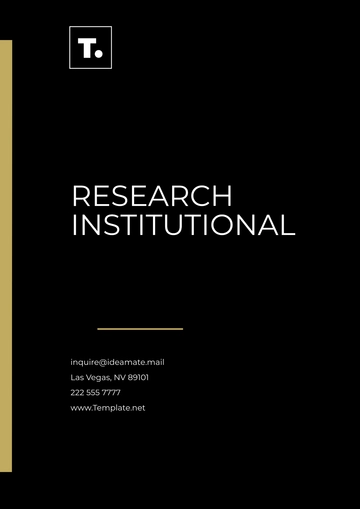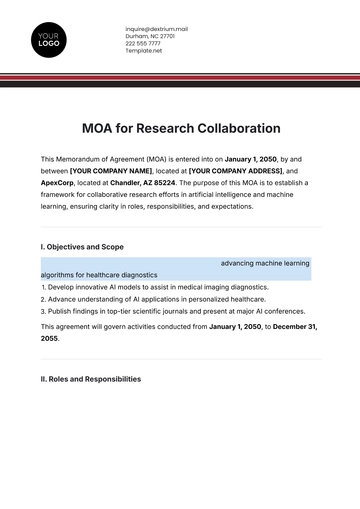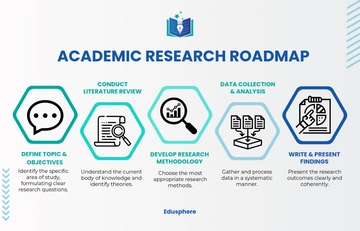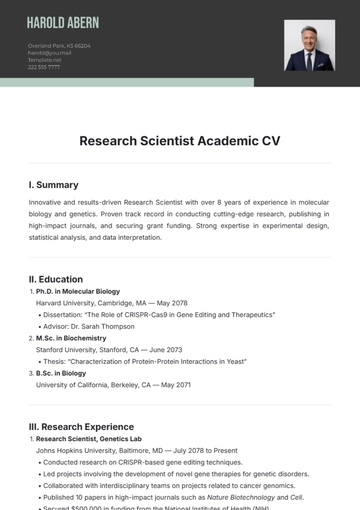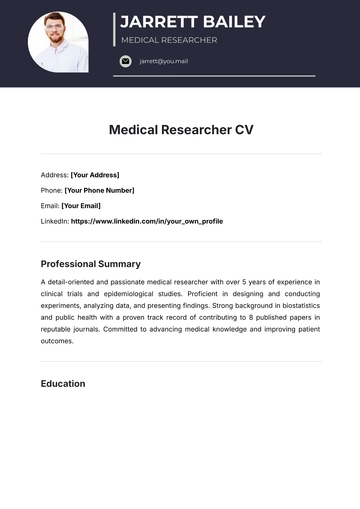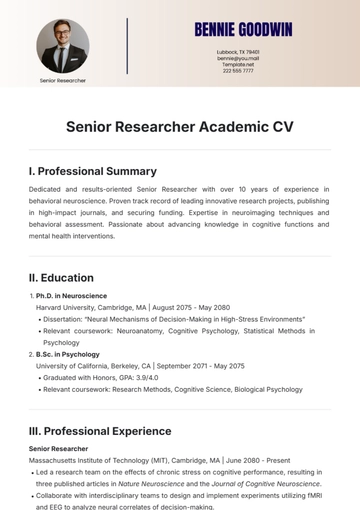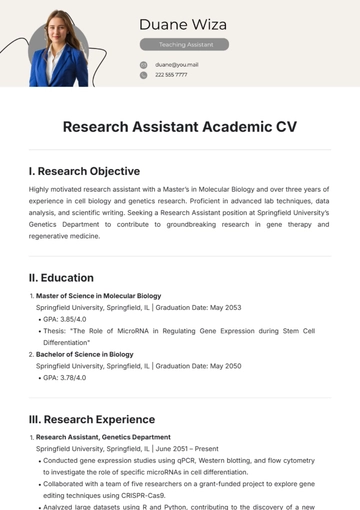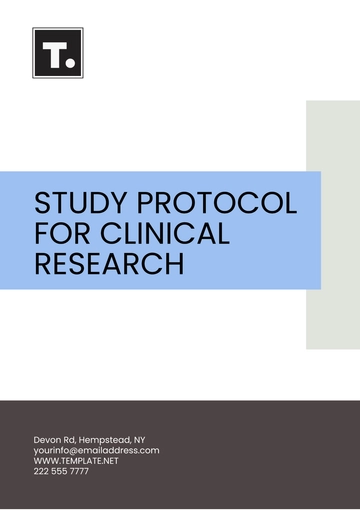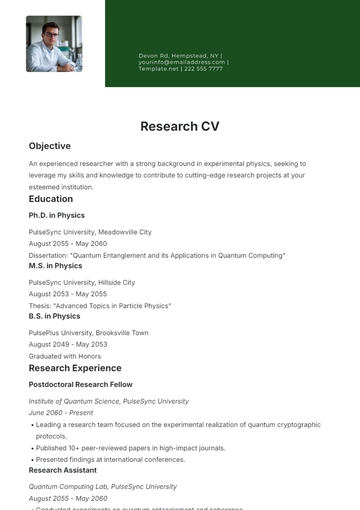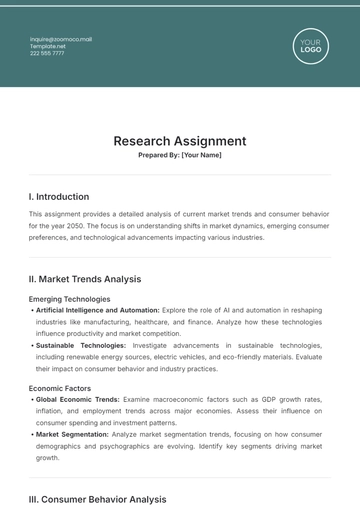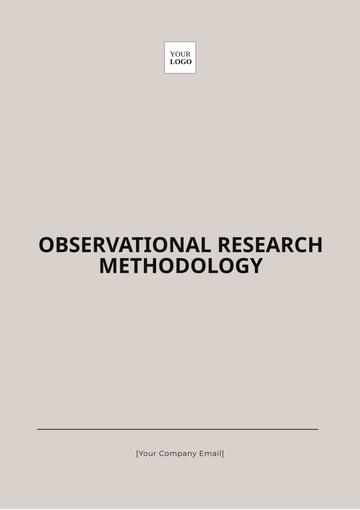Free Leadership Development Action Research
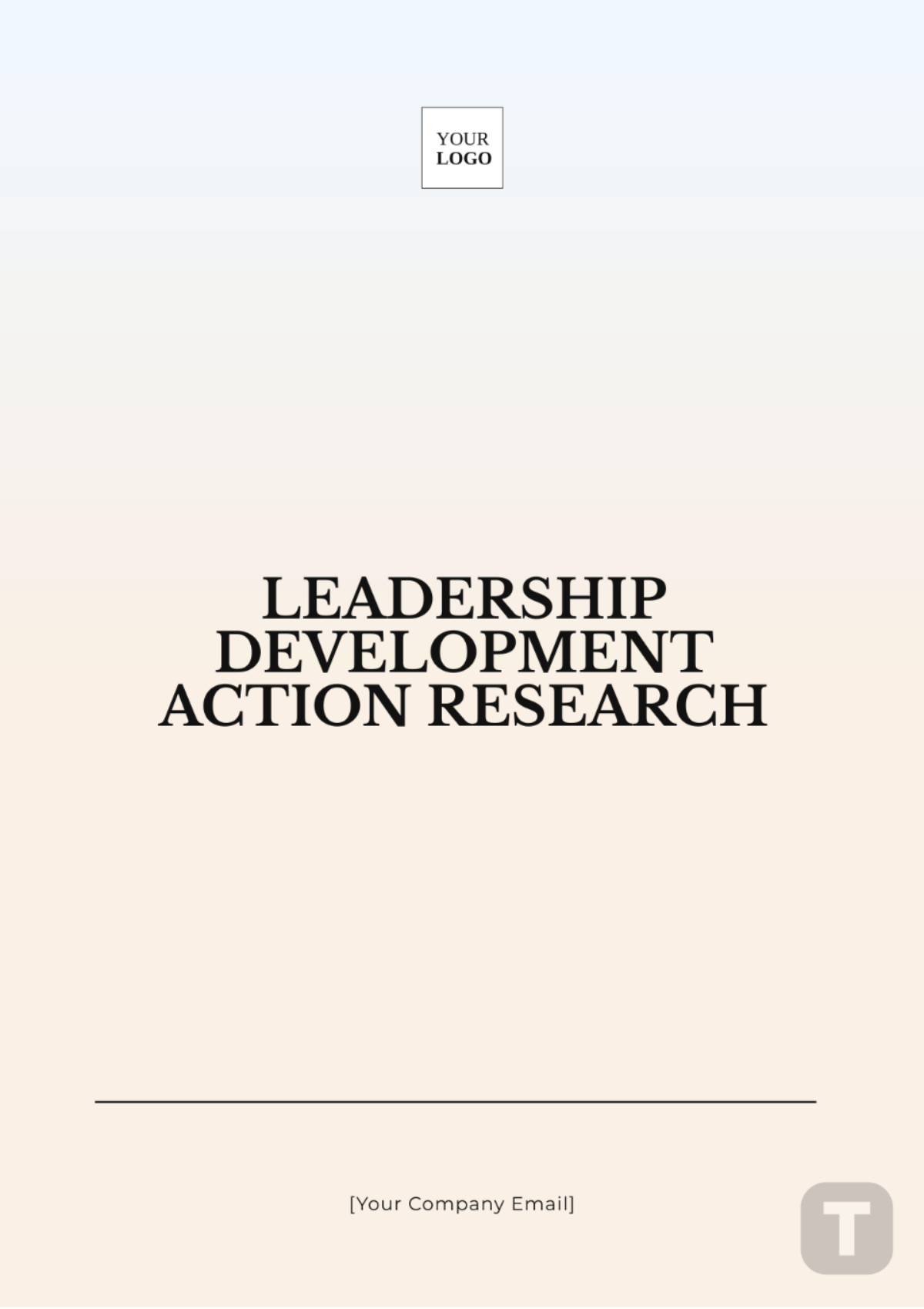
Prepared By: [YOUR NAME]
Date: [DATE]
I. Introduction
Leadership Development Action Research is a structured approach to studying and improving leadership practices within an organization or community. It involves a cyclical process of planning, action, observation, and reflection, aimed at enhancing leadership skills, strategies, and behaviors. This research focuses on addressing real-world challenges and seeks to create actionable insights that lead to meaningful improvements in leadership effectiveness. The primary purpose of this research is to identify key areas for improvement in leadership, implement strategies to address these areas and evaluate the outcomes.
II. Literature Review
A. Theories and Models
Transformational Leadership Theory (Bass, 2050): Focuses on inspiring and motivating followers to achieve higher performance levels.
Servant Leadership (Greenleaf, 2050): Highlights leaders who prioritize team members' needs and foster their growth and performance.
Action Research Cycle (Lewin, 2050): The process consists of planning, action, observation, and reflection to inform future cycles.
B. Previous Research
Kouzes and Posner (2050): Leaders who regularly reflect on their actions and decisions consistently enhance their effectiveness.
Day et al. (2050): Emphasize the role of continuous feedback and personal development in enhancing leadership skills.
III. Methodology
A. Research Design
The study employed an action research design characterized by its iterative, cyclical approach. This design involves four key phases: planning, action, observation, and reflection. Each phase builds upon the previous one to continually refine leadership practices and strategies. The cyclical nature of this research ensures ongoing improvement and adaptation to emerging insights and challenges.
B. Data Collection Methods
Interviews: Conducted in-depth, semi-structured interviews with a diverse group of leaders and team members. These interviews were designed to capture rich qualitative data on leadership practices, challenges, and experiences. The semi-structured format allowed for flexibility and deeper exploration of relevant topics.
Surveys: Administered comprehensive surveys to collect quantitative data on various aspects of leadership effectiveness, including team engagement, communication clarity, and overall performance. The surveys were designed to provide measurable insights and identify areas requiring improvement.
Observation: Implemented systematic observations of leaders in their day-to-day roles to gather real-time data on leadership behaviors and interactions. This approach provided a practical understanding of how leadership strategies are applied and their immediate impact on team dynamics.
C. Analysis Process
Qualitative Data Analysis: Utilized thematic analysis to systematically identify and analyze patterns and themes within the qualitative data collected from interviews. This involved coding responses, grouping related themes, and interpreting the data to derive actionable insights.
Quantitative Data Analysis: Employed statistical methods to analyze survey results and validate qualitative findings. This included descriptive statistics to summarize data trends and inferential statistics to assess the significance of observed patterns and relationships.
IV. Findings
Theme | Description | Key Findings |
|---|---|---|
Communication | Effective leaders demonstrate clear and transparent communication. | - 85% of leaders reported improved team understanding with clear communication. |
Empowerment | Leaders who empowered team members observed higher levels of engagement and performance. | - 80% of leaders who delegated tasks effectively saw a 20% increase in team engagement. |
Reflective Practice | Leaders who engaged in regular reflection were able to adapt and enhance their strategies effectively. | - 70% of leaders who practiced reflection saw a 15% improvement in strategy effectiveness. |
Detailed Insights
Communication: Effective leaders prioritized clear, transparent communication, which enhanced team cohesion and understanding. The majority of leaders who improved communication reported better team dynamics and higher satisfaction among team members.
Empowerment: Leaders who actively empowered their team members through delegation and trust saw significant improvements in engagement and performance. This approach led to increased productivity and a stronger sense of ownership among team members.
Reflective Practice: Regular reflection allows leaders to evaluate and refine their strategies continuously. Leaders who engaged in reflective practices noted significant improvements in their leadership effectiveness and adaptability to challenges.
V. Action Plan
Based on the findings, the following actions are proposed to enhance leadership development within the organization:
Implement Reflection Sessions: Schedule regular reflection sessions for leaders to evaluate and enhance their practices and strategies.
Develop Mentorship Program: Create a mentorship program where experienced leaders provide guidance and support to emerging leaders.
Enhance Communication Training: Introduce comprehensive communication training programs to improve clarity and transparency in interactions.
Introduce Empowerment Workshops: Organize workshops focusing on effective delegation and trust-building techniques to empower team members.
VI. Discussion and Reflection
A. Key findings suggest
Importance of Reflection: Regular reflection is crucial for leaders to continuously improve their practices. Leaders who engaged in reflective practices were able to adapt their strategies effectively, leading to enhanced leadership performance.
Impact of Empowerment: Empowering team members through delegation and trust significantly increased engagement and performance. Leaders who prioritized empowerment saw notable improvements in team motivation and productivity.
Role of Communication: Clear and transparent communication was consistently linked to higher team satisfaction and better understanding. Leaders who excelled in communication fostered stronger team cohesion and effectiveness.
B. Implications for Practice
Organizations should foster environments that support structured reflection and continuous learning for leaders.
Leadership development programs must emphasize the importance of empowerment and effective communication.
Ongoing feedback and support mechanisms are essential for sustaining leadership growth and team performance.
C. Future Research Directions
Investigate the long-term impact of structured reflection and empowerment strategies on overall organizational performance.
Explore additional factors that contribute to effective communication and how they influence leadership outcomes.
VII. Conclusion
The Leadership Development Action Research highlights the critical role of a structured, cyclical approach to enhancing leadership practices. By focusing on regular reflection, empowerment, and effective communication, leaders can significantly improve their strategies and impact. The findings underscore the need for ongoing development and adaptation to achieve sustained leadership effectiveness. Implementing the proposed action plan and continuously evaluating its outcomes will drive meaningful progress in leadership development, ultimately leading to more engaged and productive teams.
VIII. References
Kouzes, J. M., & Posner, B. Z. (2050). The Leadership Challenge: How to Make Extraordinary Things Happen in Organizations. Publisher.
Day, D. V., Fleenor, J. W., Atwater, L. E., Sturm, R. E., & McKee, R. A. (2050). Advances in Leader and Leadership Development. Publisher.
- 100% Customizable, free editor
- Access 1 Million+ Templates, photo’s & graphics
- Download or share as a template
- Click and replace photos, graphics, text, backgrounds
- Resize, crop, AI write & more
- Access advanced editor
Cultivate leadership skills with Template.net’s Leadership Development Action Research Template. This fully editable and customizable template is ideal for researching and implementing leadership development strategies. Editable in our AI Editor Tool, it allows you to customize the template to fit your specific organizational needs, helping to foster strong and effective leaders.






